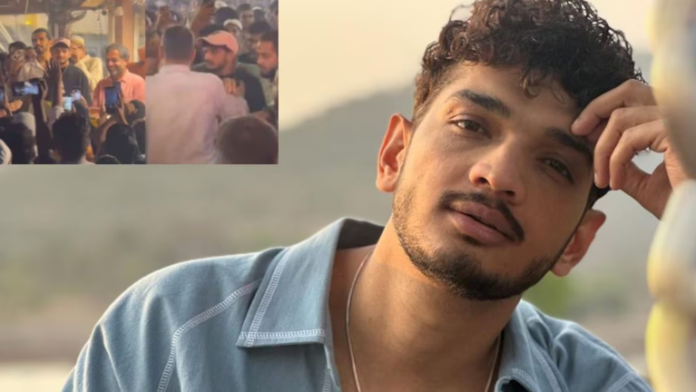Recently, Munawar Faruqui, the winner of Bigg Boss 17, found himself at the receiving end of a brutal assault by a group of individuals. The incident, which unfolded as Faruqui was exiting a public event, saw him subjected to verbal abuse and physical violence, including the hurling of eggs—an appalling affront to artistic freedom and personal safety.
Munawar Faruqui, a prominent figure in the entertainment industry known for his wit and humor, had garnered widespread acclaim for his stint in Bigg Boss 17, where he captivated audiences with his charisma and talent. However, his success and popularity became a double-edged sword when he became the target of vitriol and aggression from a group of individuals who purportedly took offense at his comedic content.
The assault on Faruqui underscores a troubling trend of intolerance and censorship that has permeated society, stifling artistic expression and undermining fundamental rights. In a democratic society that cherishes freedom of speech and expression, the resort to violence and intimidation as a means of silencing dissenting voices represents a grave threat to the very fabric of democracy.
Moreover, the attack on Faruqui highlights the vulnerability faced by artists and entertainers who dare to challenge societal norms and conventions through their work. As purveyors of creativity and imagination, artists play a pivotal role in pushing boundaries, provoking thought, and fostering dialogue—a role that is increasingly imperiled in an environment marked by intolerance and hostility.
The hurling of eggs at Faruqui serves as a poignant symbol of the erosion of civility and respect in public discourse, where differences of opinion are met not with reasoned debate but with brute force and aggression. Such acts of violence not only undermine the dignity and safety of individuals but also erode the very foundations of a civilized society built on principles of tolerance, pluralism, and mutual respect.
Furthermore, the assault on Faruqui raises broader questions about the role of entertainment in shaping societal attitudes and values. Comedy, as an art form, has long served as a vehicle for social commentary and critique, challenging prevailing norms and exposing hypocrisies. Yet, the backlash faced by Faruqui highlights the precarious position occupied by comedians and satirists in an increasingly polarized and politically charged landscape.
In the aftermath of the attack, there has been an outpouring of support for Faruqui from across the entertainment industry and civil society, condemning the violence and calling for justice. Celebrities, activists, and ordinary citizens alike have rallied behind Faruqui, asserting the right of artists to create and express themselves freely without fear of reprisal or censorship.
The incident has also reignited debates about the need for stronger legal protections for artists and entertainers against threats and attacks aimed at stifling their freedom of expression. While freedom of speech is enshrined as a fundamental right in democratic societies, its practical realization often requires robust legal safeguards and mechanisms to safeguard individuals from harassment and persecution.
In addition, the assault on Munawar Faruqui, the winner of Bigg Boss 17, serves as a chilling reminder of the perils faced by artists and entertainers who dare to challenge societal norms and push the boundaries of creative expression. The attack represents not only an egregious violation of Faruqui’s rights and dignity but also a broader assault on artistic freedom and the principles of democracy. As society grapples with the ramifications of this incident, it is imperative that we reaffirm our commitment to upholding the values of tolerance, diversity, and freedom of expression, lest we risk descending further into darkness and intolerance.
Furthermore, the assault on Munawar Faruqui underscores the urgent need for society to confront the root causes of intolerance and prejudice that fuel such acts of violence. Only by addressing the underlying societal attitudes that breed hatred and division can we hope to create a world where artistic expression flourishes freely, unencumbered by fear or censorship.

